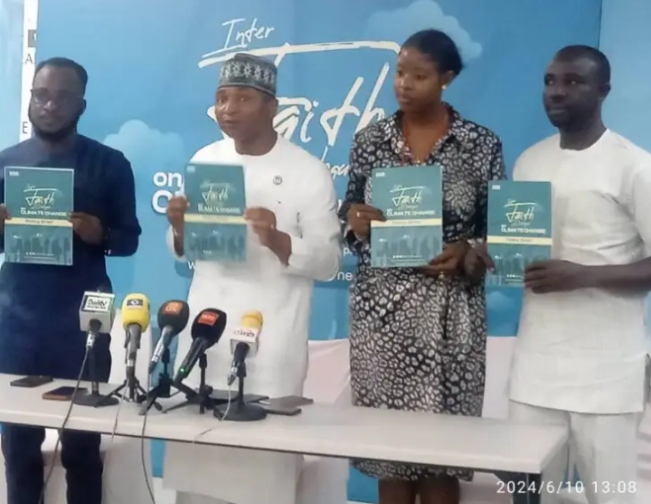By Perpetua Onuegbu/Funmilayo Adeyemi
Connected Development (CODE), an NGO has unveiled a policy document to galvanise mass action that would allow the engagement of faith-based organisations in mitigating climate change challenges in the country.
Mr Hamzat Lawal, Executive Director, CODE, said at the unveiling on Monday in Abuja, that Nigeria, like many developing countries facing the effects of climate change, have designed and implemented key climate adaptation and mitigation policies.
“However, with regards to education, mobilisation and messaging for climate action, the strength of faith is yet to be operationalised.
“Using religion and inter-faith dialogue can improve message delivery and simplify the context of climate change.
“The 28th edition of the United Nations Climate Change Conference (COP28) in 2023 included, for the first time in the conference’s history, the “Faith Pavilion”.
“This is aimed to, among other things, “encourage faith-based organisations (FBOs) to engage with their country delegates and increase their capacity to advocate for human and nature-centered negotiated outcomes at COP28 and beyond.”
Lawal said that knowledge gaps in faith-based organisations’ understanding of climate science, policies and implication significantly limits the potential of faith as an effective communication strategy for behavioral change.
“Community knowledge gaps can be reduced when faith-based communities leverage already existing knowledge about the physical and environmental changes as well as the genuine recognition of the risks associated with decline in sources of livelihood.
“Speaking up against climate injustice requires using moral suasion and advocacy as a strategy for faith-based organisations, while amplifying the voices of vulnerable communities through working closely with CSOs and other stakeholders,” Lawal said.
He said that Nigeria must leverage on local knowledge as presented in the policy document launched by the organisation, to engage faith-based institutions in bringing about behavioural change.
Speaking on the ecological fund, he said two per cent of all crude oil sales was supposed to be distributed to states to mitigate the effects of climate change.
“The reality of it is that most of the funds seem to be a pipeline through which public officials syphoned public resources,” he said.
He, therefore, called for accountability for such funds.
Also speaking, Mr Daniel Oladoja, Strategic Communications Consultant, CODE, said the most important thing in climate action was local evidence.
Oladoja said that the problem Nigeria had before now was the use of foreign based data.
He said that the challenge had been addressed by CODE as the country now had a policy document that was written by Nigerians and to be used for Nigeria.
He, therefore, urged the government and all citizens to study the document and use it to address the climate change challenges in the country. (NAN)

